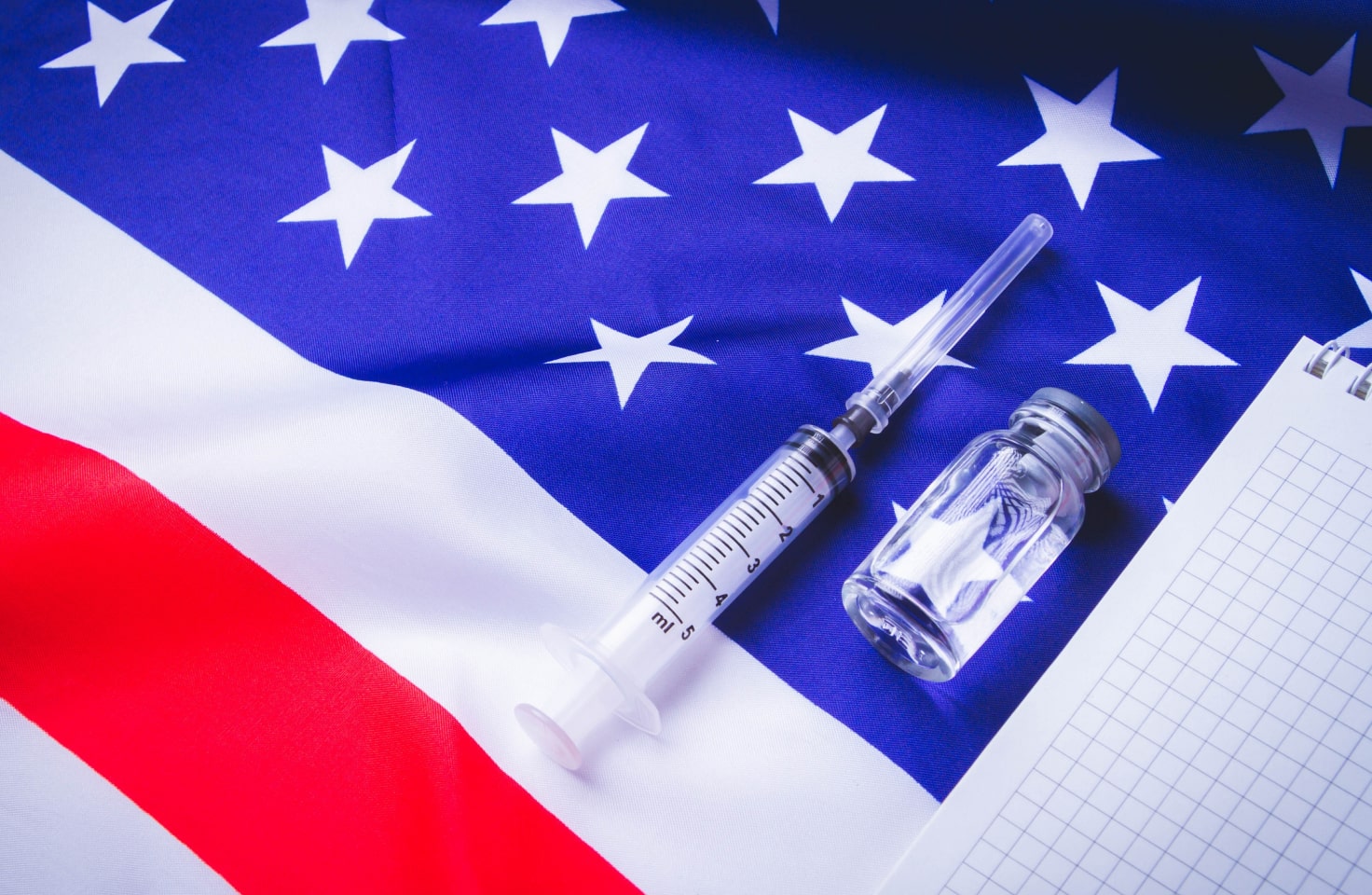T1D Guide
T1D Strong News
Personal Stories
Resources
T1D Misdiagnosis
T1D Early Detection
Research/Clinical Trials
Type 1 Diabetes and Family History
When one family member is affected by a disease or disability, it affects everyone in the family. Which is why it's so important to learn all the facts surrounding an illness. Fortunately, we have a wealth of knowledge and resources to better understand type 1 diabetes in order to protect our loved ones and prepare for the future.

When you’re initially diagnosed with a chronic disease like type 1 diabetes (T1D), you want to learn everything you can: the symptoms, causes, treatment, and if secondary autoimmune diseases are a concern. You may find that the more you know, the more questions you have, such as, is type 1 diabetes genetic? And if you’re a parent, could my children inherit it?
According to the Juvenile Diabetes Research Foundation (JDRF), 90 percent of people with type 1 diabetes have no family history; however, researchers are learning a great deal more about specific gene markers and how genetics does, in fact, play a part.
First, it’s best to understand the unique complexities surrounding type 1 diabetes. T1D is a rare chronic autoimmune condition that falls under the umbrella of diabetes mellitus (DM), an endocrine disease that causes high blood sugar levels.
The most common types of DM are T1D, type 2 diabetes (T2D), latent autoimmune diabetes of adults (LADA or type 1.5) and gestational diabetes. In all kinds, the pancreas either doesn’t produce enough insulin or the body’s cells become resistant to insulin.
In some T2D cases, lifestyle changes can reverse diabetes. By eating a healthy diet, increasing physical activity and maintaining a healthy weight, individuals may be able to reach and hold normal blood sugar levels without medication. With type 1 diabetes, there is no way to reverse the autoimmune condition, although new breakthrough drugs have been shown to delay the onset, in some cases, up to two years.
As researchers don't know the exact cause of T2D, they do understand that in addition to the genetic risk factors, several lifestyle factors apply (lack of physical activity, insulin resistance, obesity, and high blood pressure.)
The truth is a T1D diagnosis could be the perfect storm of many factors. To truly comprehend the genetics behind the illness and root causes of type 1 diabetes, we need to understand the T1D autoimmune condition.
Type 1 Diabetes Risk & Causes
What is type 1 diabetes?
T1D differs from other forms of diabetes in that the autoimmune disease is a chronic condition where the body’s immune system attacks the insulin-producing beta cells in the pancreas. Once called juvenile diabetes and commonly seen in children and adolescents, the National Institutes of Health (NIH) reports T1D is now found in almost half of all adult cases. Check here for symptoms and signs of type 1 diabetes.

Causes of Type 1 Diabetes
Scientists believe a combination of genetic and environmental factors causes T1D. So, it’s not only certain genes. The question remains: what role does genetics play?
Genetic Risk Factors
Some genetic factors can predispose people to develop type 1 diabetes. Researchers have discovered that genetics plays an important role in diagnosing T1D.
The strongest associations with T1D are the HLA-DR3 or HLA-DR4- and DQ genes and the insulin gene (INS). One NIH study found that the human leukocyte antigens (HLA) are proteins found on most cells in the body and that these HLA genes are responsible for about 50% of the genetic risk of type 1 diabetes.
Moreover, the HLA genotypes are more common in people diagnosed at a younger age and more common in White individuals. Most White people with T1D have the gene markers HLA-DR3 or H6-9LA-DR4. The American Diabetes Association (ADA) says, “If you and your child are white and share these genes, your child’s risk is higher.”

Interesting Fact: The ADA reports, "white people have the highest rate of type 1 diabetes." Followed closely by American Indian/Alaskan Native adults (13.6%), African American/Black non-Hispanic adults (12.1%), and Hispanic adults (11.7%).
The HLA genes, which create proteins the immune system uses, are widely seen in T1D cases. It’s worth noting that “Some versions of these genes increase the risk of developing T1D while other versions help protect against it.”
Family History and T1D
Scientists have also determined that some relatives of T1D patients who develop the disease have specific autoantibodies in their blood years before diagnosis. This means we can now predict if a person may develop T1D if they carry two or more of these autoantibodies.
Is family history common in type 1 diabetes?
A family history of type 1 diabetes does slightly increases the chances of developing the condition. According to the ADA, both parents carry genes contributing to diagnosing T1D cases.
Interesting Fact: The National Institutes of Health (NIH) report children of female T1D patients have a slightly lower risk (1.3-4%) than children of male T1D patients who have a 6-9% risk.
The Centers for Disease Control and Prevention (CDC) cites, “If you have a mother, father, sister or brother with diabetes, you are more likely to develop the disease.” While siblings of T1D individuals have a 15-fold greater risk of getting the disease than the general population, identical twins have a 70 percent likelihood.

Conversely, as more than 85 percent of patients with type 1 diabetes don’t have a positive family history, there must be more involved than simply genetics. With family history comes a slightly higher risk; still, we know it’s not all in the genes; BOTH environmental and genetic factors are at play.
Type 1 Diabetes and the Environment
Essentially, it’s an interaction between genetics and environmental triggers that causes T1D. With most diseases, gene plus ecological interaction influences the disease risk.
This means specific environmental exposures (pathogens, chemicals, or other external impacts) may contribute to T1D. Equally important to know is that environmental factors may play a role in the development of T1D, even if someone doesn’t carry the genes.
Keep reading to learn more about the complex gene-environment (G x E) connection.
Environmental Factors
There are widespread theories on which environmental factors play a role in developing type 1 diabetes. The list includes vaccines, maternal age, psychological stress, infections, Vitamin D intake and diet. While some are harder to disprove than others, here are a few common factors:
Cold Weather
The most notable environmental triggers relate to cold weather, where the temperature drops. T1D develops more often in chilly seasons, specifically winter. Also, cold weather may increase the T1D risk by triggering the autoimmune response that destroys the insulin-producing beta cells. When temperatures change, blood flow and glucose levels can be affected.
Cold Climates
T1D is more prevalent in countries far from the equator, particularly Scandinavia. According to the International Diabetes Federation, Finland, Norway, Sweden and Denmark have the highest incidence of rates of T1D, while South America, China, Japan and Asian countries have the lowest reports.
Viral Infections
Another contributing factor might be viruses. Viruses that affect some people mildly might trigger T1D in other individuals. The reasons for this are unknown. As infections become more common in cold weather, the viruses may trigger the immune response time.

Early Diet
It’s also speculated that the early diet of a child, whether the child was breastfed or when they started solid foods, may play a role.
Other Risk Factors for Type 1 Diabetes
Age
The Mayo Clinic reports two noticeable peak ages for kids developing type 1 diabetes: children ages four to seven years old and children ages 10-14.
Delayed Diabetes
Even if you have a family history of diabetes mellitus (DM), the endocrine disease that causes high blood glucose (sugar) levels, it’s especially important to know the risks and whether or not you can prevent or delay your diabetes. In all types (type 1 diabetes, type 2 diabetes, latent autoimmune diabetes (LADA)and gestational diabetes), the pancreas either doesn’t produce enough insulin or the body’s cells become resistant to insulin.
Worldwide cases continue to rise; diabetes affects over 530 million people, with over 8.4 million with T1D. In the United States, only 5.8% of diagnosed diabetes cases are type 1 diabetes. According to the CDC, 90 to 95% have type 2. As lifestyle factors lessen the burden of T2D, there is no way to reverse type 1 diabetes. Although some medications have been approved by the FDA (Teplizumah or Tzield®) to delay T1D in at-risk patients.
Also, the blood pressure medication verapamil may strengthen beta cells and slow down the immune system’s destruction, improving the cells’ ability to produce insulin for longer. This is why early screening is so valuable. Testing and awareness protect against severe complications like diabetic ketoacidosis (DKA), a life-threatening side effect associated with a prolonged high blood sugar level.
TrialNet
TrialNet is an international network of endocrinologists, physicians, scientists and heath care teams researching type 1 diabetes with the goal to prevent, delay and reverse the disease.
TrialNet's research includes clinical trials and studies through disease-modifying therapies. They also offer risk screening for the extended family of people with T1D, as research shows that family members are 15 times more likely to develop T1D than the general population.

Diabetes Support
It’s important to know you’re not alone with this diagnosis. Individual and family support groups are available. It's helpful to seek other parents and T1Ds in the diabetes online community.
Find a peer support service in your area. And above all, talk to your diabetes team for assistance and advice.


.webp)





.webp)
.jpg)
.jpeg)
.jpg)
.jpg)
.jpg)
.jpg)



.jpg)

.jpg)

.jpg)



.jpg)
.jpg)
.jpg)


.jpg)
.jpg)


.jpg)

















.jpg)




.jpg)








.webp)












.webp)





















.webp)








.jpg)



.jpg)







.webp)